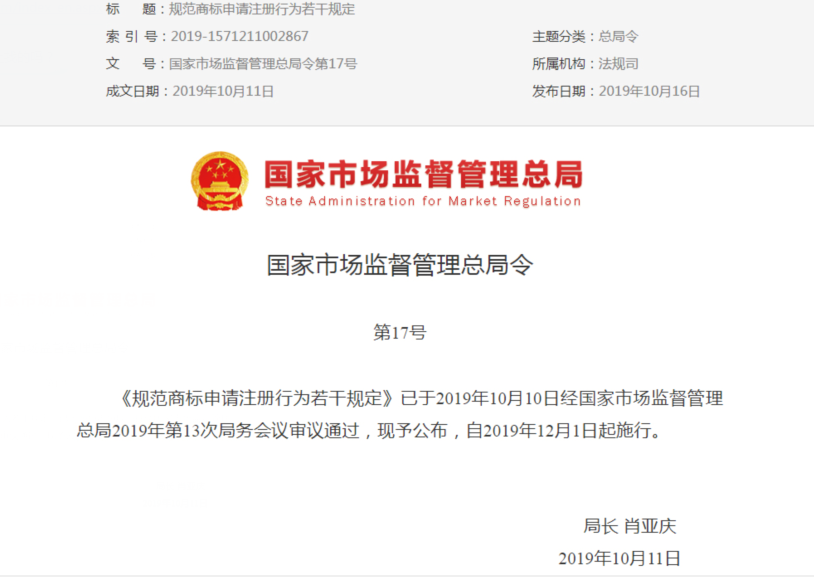
Source: China State Administration for Market Regulation’s website
China State Administration for Market Regulation has just released Several Regulations on Normalizing Behaviors of Trademark Application for Registration on October 16, 2019. Following the new Amendments to China Trademark Law passed in April this year, these Regulations aim to specify the behaviors of malicious trademark application without use intent and hoarding registration, as well as the administrative punishment towards those violating parties and trademark agencies. The new Regulations will take effect on December 1, 2019.
In recent new Amendments to Trademark Law, one of the most notable is Article 4 which adds that “The application for registration of a malicious trademark that is not intended for use should be rejected". Here comes the official definition of the newly amended concept.
Article 8 of Several Regulations on Normalizing Behaviors of Trademark Application for Registration stipulates that:
The trademark office, when determining whether a trademark application for registration violates Article 4 of the Trademark Law, shall consider the following factors:
(1) the trademark amount that has been applied for registration by the applicant, relative nature person, legal person, or other organization; the designated classes; and the trading situation of trademarks;
(2) the industry and operation situations of the applicant;
(3) the situation that the applicant had once been recognized conducting malicious trademark registration or trademark infringement behaviors in an effective administrative decision/ruling or judicial judgment.
(4) the applied mark is identical with or similar to other party’s trademark with certain reputation;
(5) the applied mark is identical with or similar to the name of acelebrity, or trade name/short name/other business logos of a well-known enterprise;
(6) any other factors that the trademark office deems shall be considered.
These specific regulations not only act as guidelines for the trademark office in their ex officio examination to proactively refuse those malicious trademark applications without use intent, but also are instructive and meaningful for real trademark proprietors to take actions such as opposition or invalidation against malicious trademark squatting.